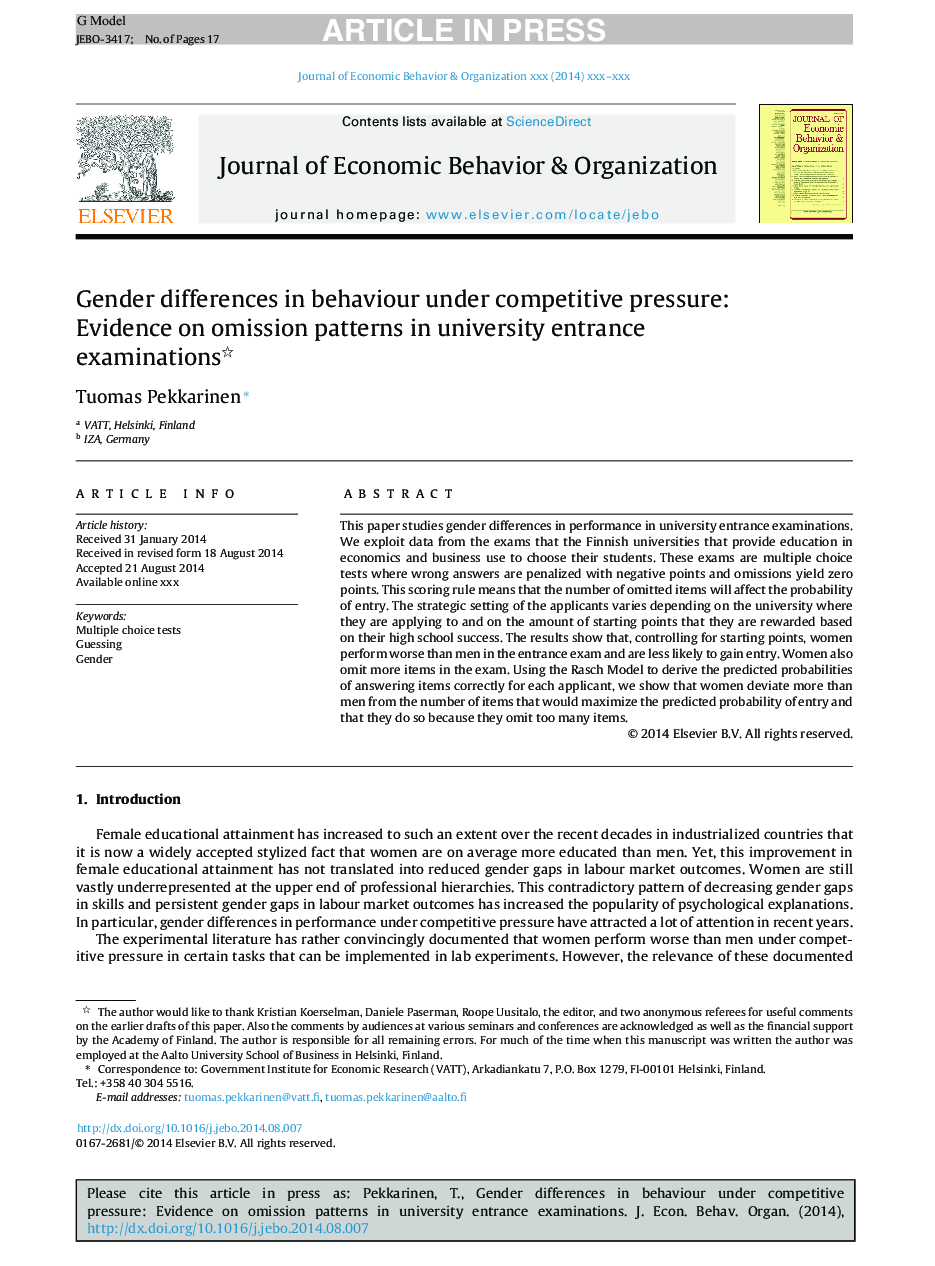| Article ID | Journal | Published Year | Pages | File Type |
|---|---|---|---|---|
| 7243185 | Journal of Economic Behavior & Organization | 2015 | 17 Pages |
Abstract
This paper studies gender differences in performance in university entrance examinations. We exploit data from the exams that the Finnish universities that provide education in economics and business use to choose their students. These exams are multiple choice tests where wrong answers are penalized with negative points and omissions yield zero points. This scoring rule means that the number of omitted items will affect the probability of entry. The strategic setting of the applicants varies depending on the university where they are applying to and on the amount of starting points that they are rewarded based on their high school success. The results show that, controlling for starting points, women perform worse than men in the entrance exam and are less likely to gain entry. Women also omit more items in the exam. Using the Rasch Model to derive the predicted probabilities of answering items correctly for each applicant, we show that women deviate more than men from the number of items that would maximize the predicted probability of entry and that they do so because they omit too many items.
Related Topics
Social Sciences and Humanities
Economics, Econometrics and Finance
Economics and Econometrics
Authors
Tuomas Pekkarinen,
